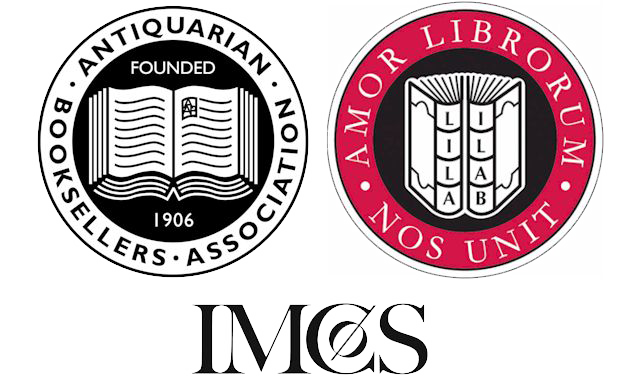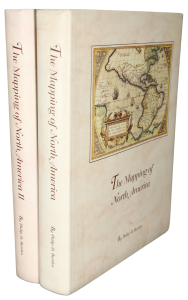Rare Maps and Prints
- World & Celestial
- North America
- West Indies, South & Central America
- British Isles
- British Isles
- English counties
- Large-scale
- Bedfordshire
- Berkshire
- Buckinghamshire
- Cambridgeshire
- Cheshire
- Cornwall
- Cumberland
- Derbyshire
- Devon
- Dorset
- Durham
- Essex
- Gloucestershire
- Hampshire
- Herefordshire
- Hertfordshire
- Huntingdonshire
- Islands
- Kent
- Lancashire
- Leicestershire
- Lincolnshire
- Middlesex
- Norfolk
- Northamptonshire
- Northumberland
- Nottinghamshire
- Oxfordshire
- Rutland
- Shropshire
- Somerset
- Staffordshire
- Suffolk
- Surrey
- Sussex
- Warwickshire
- Westmoreland
- Wiltshire
- Worcestershire
- Yorkshire
- Wales
- Scotland
- Ireland
- Western Europe
- Eastern Europe
- Middle East
- Africa
- Asia
- Australasia & Pacific
- Decorative Prints
- Title Pages
Mr. Philip D. Burden
P.O. Box 863,
Chalfont St. Giles, Bucks HP6 9HD,
UNITED KINGDOM
Tel: +44 (0) 1494 76 33 13
Email: enquiries@caburden.com
Bound with the FIRST STATE of the VERY RARE separately published large-scale map of Yorkshire by John Tuke. Little is known of Tuke in the carto-bibliographies other than that he was a land surveyor in York with printed maps issued between 1787 and 1798. Further research identifies the Tuke family as Quaker innovators. Members were behind what became the Rowntree’s Cocoa Works, the Retreat Mental Hospital and three Quaker schools. John Tuke (30 June 1759-19 January 1841) was the fourth born or five children to William Tuke (1732-1822) and Elizabeth Hoyland (1729-60). William Tuke was a tea merchant and grocer in York and a pioneer in work on mental health. Our John Tuke was born in Lincroft, Bishopshill, York and married Sarah Mildred (1762-1829), daughter of Daniel Mildred and Lydia Daniel, on 16 Apr 1783. They had eight children and he died in Bishophill, York.
In 1787 he would publish two maps, one of the region of Holderness (also found here) in Yorkshire, the other being this large four-sheet map of the whole county. Lower right below the beautifully engraved title cartouche of a north east view of York is the imprint of ‘Wm. Darton Engr.. Birchin Lane, London’. It is unclear from this whether he is responsible for just the title cartouche or the whole map. Two insets appear on the map of which that upper right is entitled ‘Reduced Map of the County of York describing the Roman Roads & c. and also the intended Grand Canal betwixt the Rivers Ouse and Humber …’ The Explanation below describes the different typography used to illustrate the Market towns, Parishes and other villages etc. Churches, Country Seats and Parks are also singled out as are the differing types of roads and, rivers, boundaries and the divisions of the Wapontakes. Lower left is an inset plan of Kingston upon Hull surveyed by Anthony Bower (fl.1781-1813+) in 1786. Copac only records four examples in institutions: British Library; Brotherton Library, Leeds (2 examples); Allen Collection, Bodleian Library, Oxford. Rodger in her extensive survey identifies six others. Beautifully wash coloured at the time by Wapontake.
Bound with the rare separately published map of Holderness in the East Riding of Yorkshire. John Tuke’s ‘map of Holderness is of particular significance and, due to its large scale, it is possible to recognise areas which have now been eroded by the sea’ (Rawnsley). Actual distances to the sea from five villages are given but the most interesting part of the map is the identification of several towns lost to the sea noted just offshore. Some are even in the Humber Estuary. Examples are Pensthorpe, Birstall Garth, Owthorne, Sandley Meer and Auburne which amongst others have all since disappeared into the sea. Previous places washed away are also noted such as ‘Hartburn, washed away by the sea’, ‘Site of Hornsea Burton’ and others. This whole area of East Yorkshire has long been eroded by the sea, its most significant capture being Ravenser where King Henry IV landed in 1399. The town at one-point rivalled Grimsby and Hull for importance. This map of Holderness includes Kingston upon Hull, Beverley and Hornsea.
Provenance: Bears the bookplate of the Vernon-Harcourt family, most likely that of Edward Venables-Vernon-Harcourt (1757-1847), Archbishop of York. He was the third son of George Venables-Vernon, 1st Baron Vernon and it was he who inherited the Harcourt estate on the death of his cousin, the last of the Harcourt’s. Collection of Ian Voase Askew (1921-2014), Wellingham Folly, Sussex. Eden (1975); Rawnsley (1970) 27 & 30; Rodger (1972) 516 & 536, Whitaker 240; Worms & Baynton-Williams (2011).








